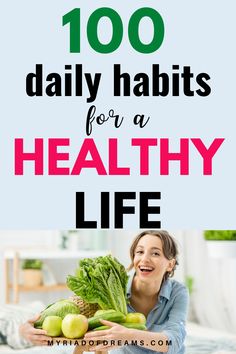Nutrition plays a critical role in enhancing athletic performance, recovery, and overall health. Whether you’re a seasoned athlete or just starting your fitness journey, understanding how to fuel your body can make all the difference. Here are ten essential nutrition tips tailored for fitness enthusiasts to help you maximize your performance and achieve your fitness goals.
1. Prioritize Whole Foods
Whole foods—fruits, vegetables, whole grains, lean proteins, and healthy fats—should form the foundation of your diet. These nutrient-dense options provide essential vitamins, minerals, and antioxidants that support recovery and overall health. Processed foods often lack the nutritional benefits and can contain unhealthy additives, so focusing on whole foods is key to optimizing your performance.
Tip:
Aim to fill half your plate with colorful fruits and vegetables at every meal. This not only ensures a variety of nutrients but also keeps your meals interesting.
2. Balance Your Macronutrients
Macronutrients—carbohydrates, proteins, and fats—are vital for fueling your workouts and aiding recovery. A balanced intake helps maintain energy levels and promotes muscle repair.
- Carbohydrates: The primary source of energy, especially during high-intensity workouts. Opt for complex carbohydrates like brown rice, quinoa, and whole grain pasta.
- Proteins: Essential for muscle repair and growth. Include lean meats, dairy, legumes, and plant-based proteins like tofu and tempeh.
- Fats: Important for hormone production and energy. Focus on healthy fats such as avocados, nuts, seeds, and olive oil.
Tip:
A general guideline is to aim for 45-65% of your calories from carbohydrates, 10-35% from protein, and 20-35% from fats, adjusting based on your specific activity level and goals.
3. Stay Hydrated
Hydration is crucial for optimal performance and recovery. Dehydration can lead to fatigue, decreased coordination, and impaired performance.
Tip:
Drink water consistently throughout the day, and consider electrolyte-rich drinks during intense workouts lasting longer than an hour. A good rule of thumb is to drink half your body weight in ounces daily (e.g., a 150-pound person should aim for 75 ounces).
4. Time Your Meals
Meal timing can significantly impact your energy levels and recovery. Eating at strategic times can help you maximize performance and replenish glycogen stores.
- Pre-Workout: Fuel your body with a meal or snack that includes carbohydrates and protein about 30-60 minutes before exercising. A banana with nut butter or yogurt with berries can provide a quick energy boost.
- Post-Workout: Aim to eat within 30-60 minutes after your workout to aid recovery. A combination of protein and carbohydrates—such as a protein shake with a piece of fruit or a turkey sandwich—will help restore glycogen levels and support muscle repair.
Tip:
Experiment with timing to find what works best for your body and workout routine.
5. Incorporate Snacks Wisely
Snacking can be a great way to keep energy levels up and provide necessary nutrients between meals. Choose snacks that are rich in nutrients and align with your fitness goals.
Tip:
Opt for healthy snacks like Greek yogurt with fruit, nuts and seeds, or hummus with veggies. These provide a good mix of macronutrients to keep you fueled throughout the day.
6. Focus on Recovery Nutrition
Recovery is just as important as training. Proper nutrition post-workout helps repair muscle and replenish energy stores.
Tip:
Include a mix of protein and carbohydrates in your recovery meal or snack. For instance, a smoothie made with protein powder, spinach, banana, and almond milk is a quick, nutrient-rich option.
7. Don’t Skip Meals
Skipping meals can lead to energy crashes, poor performance, and unhealthy eating patterns later. Regularly scheduled meals and snacks help maintain stable energy levels and support metabolism.
Tip:
Plan your meals and snacks in advance to ensure you have healthy options available, making it easier to stick to your nutrition goals.
8. Listen to Your Body
Every individual has unique nutritional needs based on their body composition, activity level, and fitness goals. Tune in to your body’s hunger cues and adjust your intake accordingly.
Tip:
Keep a food journal to track what you eat, how you feel during workouts, and your energy levels. This can help you identify patterns and make necessary adjustments.
9. Be Mindful of Supplements
While a balanced diet should cover most of your nutritional needs, some fitness enthusiasts may benefit from supplements. Common supplements include protein powder, creatine, and branched-chain amino acids (BCAAs). However, it’s essential to approach supplementation with caution.
Tip:
Consult with a healthcare provider or registered dietitian before adding supplements to your routine. They can help you determine if you have any deficiencies or specific needs that require supplementation.
10. Maintain a Positive Relationship with Food
Lastly, remember that nutrition is just one piece of the puzzle. Developing a healthy mindset around food is crucial for long-term success. Avoid labeling foods as “good” or “bad” and focus on balance and moderation.
Tip:
Practice intuitive eating by paying attention to your body’s hunger and fullness signals. Enjoy treats in moderation without guilt, and remember that fitness and health are about overall lifestyle, not perfection.
Conclusion
Proper nutrition is fundamental for fitness enthusiasts looking to enhance their performance, recovery, and overall health. By focusing on whole foods, balancing macronutrients, staying hydrated, timing your meals, and listening to your body, you can create a sustainable nutrition plan that supports your fitness goals. Remember, every journey is unique, so take the time to find what works best for you and enjoy the process!
